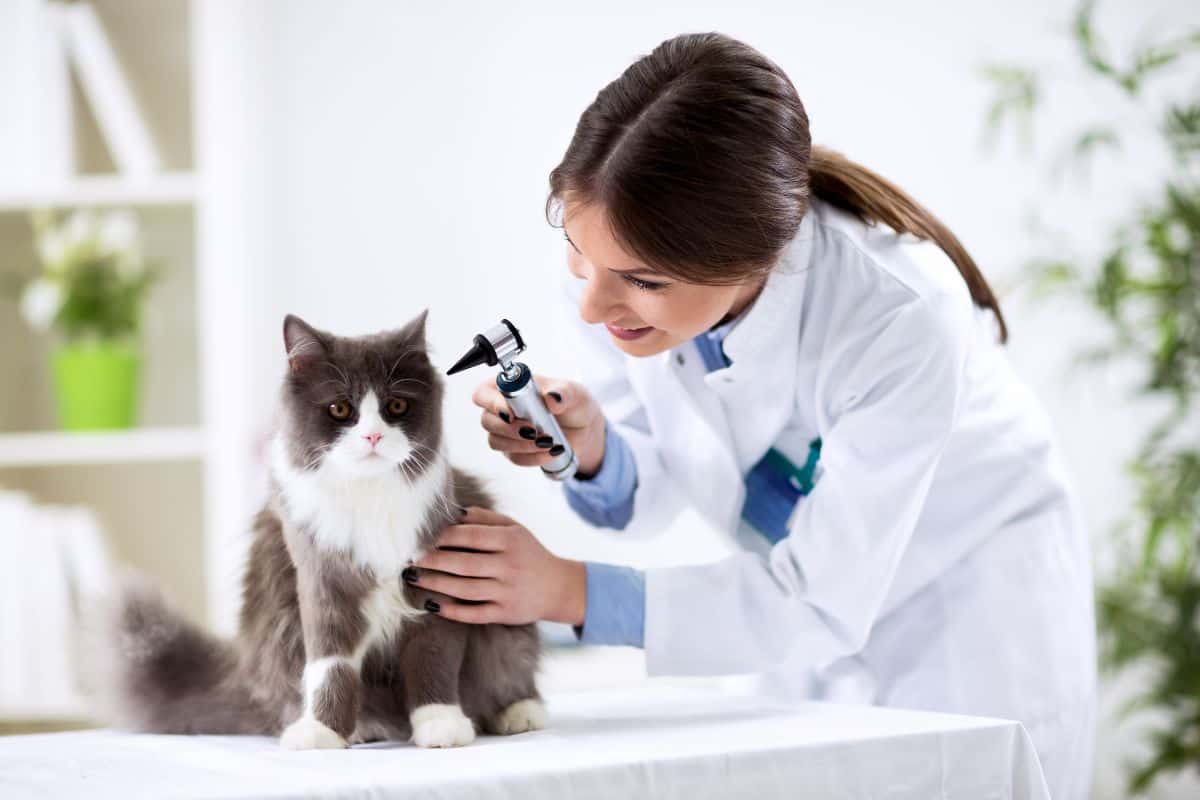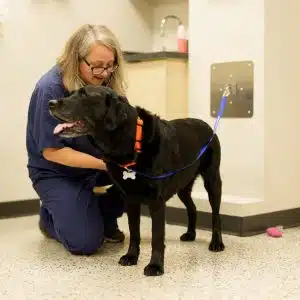How to prepare ahead of working with a Board Certified Veterinary Oncologist
The Relevance of Very Early Detection: Insights From a Vet Oncologist
Early discovery of cancer in family pets is a crucial topic for family pet proprietors and veterinary experts alike. Vet oncologists emphasize the importance of recognizing subtle indicators that may show severe health concerns. Common symptoms typically go unnoticed till they intensify. Understanding these very early caution signs and advancements in analysis techniques can make a significant distinction. What steps can pet owners require to enhance their animals' chances of early medical diagnosis and better therapy end results?
Comprehending Cancer in Family Pets: Common Types and Signs
While numerous family pet proprietors might not understand it, cancer cells is a substantial health concern influencing animals, similar to it performs in human beings. Typical kinds of cancer in animals include lymphoma, mast cell growths, osteosarcoma, and mammary lumps. These malignancies can materialize in different ways, depending upon their place and type. Symptoms often consist of unusual weight management, persistent throwing up, adjustments in hunger, or uncommon swellings and bumps. Family pets might also show sleepiness, trouble breathing, or hesitation to exercise, which can indicate underlying health concerns. Early indications can be refined, making it important for family pet proprietors to be watchful of their family pets' actions and physical condition. Recognizing these common kinds and associated symptoms can equip proprietors to seek veterinary care immediately, possibly bring about earlier diagnosis and treatment options. Identifying the indicators of cancer in animals is a vital action towards enhancing their wellness and lifestyle.
The Duty of Vet Oncologists in Very Early Discovery
Vet oncologists play a crucial duty in the very early detection of cancer in pet dogs, as their specialized training outfits them with the skills required to recognize subtle indicators that may be forgotten by basic experts. They use a mix of professional proficiency and advanced analysis devices to analyze individuals thoroughly - Veterinary Oncologist. By identifying very early signs and symptoms and risk factors, oncologists can lead animal proprietors towards prompt interventions, increasing the opportunities of successful therapy
Additionally, veterinary oncologists typically work together with basic experts to develop screening protocols tailored to particular types or age, boosting the performance of very early discovery initiatives. They inform pet dog proprietors on the importance of routine examinations and awareness of modifications in habits or physical condition. Via these proactive steps, vet oncologists significantly contribute to improving outcomes for pet dogs diagnosed with cancer cells, stressing the critical nature of their function in veterinary health care.
Advances in Diagnostic Techniques for Pet Cancer Cells
Advancements in analysis techniques have actually markedly improved the capacity to identify cancer in family pets at earlier phases. Techniques such as advanced imaging, consisting of MRI and CT scans, give thorough internal sights, permitting vets to identify tumors that may not be apparent. Additionally, the advancement of minimally invasive procedures, such as great needle aspirates and biopsies, enables precise tasting of tissues for histopathological examination with reduced tension for the pet.
Emerging molecular diagnostics, including hereditary screening and biomarker identification, are changing the landscape of vet oncology. These methods can recognize details cancer types and predict feedbacks to treatment, helping with individualized care plans. Additionally, improvements in lab techniques, such as fluid biopsies, are starting to provide non-invasive options for keeping track of tumor progression and therapy efficiency. Jointly, these advancements represent a significant leap ahead in vet medication, emphasizing the essential role of very early discovery in boosting end results for pet dogs detected with cancer.
Exactly How Family Pet Owners Can Identify Indication
Just how can pet dog owners end up being vigilant in recognizing potential indication of cancer cells? Awareness of behavioral and physical adjustments in pets is necessary. Usual indications include uncommon sleepiness, loss of hunger, or sudden weight adjustments. Pet proprietors ought to additionally take notice of consistent throwing up or diarrhea, which might indicate underlying problems.
Modifications in the skin, such as lumps, bumps, or sores that do not recover, require instant vet interest. In addition, owners should keep in mind adjustments in drinking routines, boosted urination, or difficulty in breathing. Unexplained limping or discomfort might additionally be indications of even more significant conditions.
Normal vet examinations can aid recognize these caution signs early. By preserving a close monitoring of their family pets' health and habits, proprietors can play a key role in very early detection, potentially leading to far better outcomes ought to cancer cells be identified. Recognizing these indicators may considerably influence a pet dog's top quality of life.
The Effect of Early Detection on Treatment Results
Early discovery of cancer cells in animals plays a crucial function in identifying treatment outcomes, as it usually enables a broader variety of therapeutic options. When cancer cells is detected in its onset, vets can apply much less intrusive therapies, boosting the chance of effective treatment. Early-stage cancers cells may additionally react better to radiation treatment or radiation, leading to improved survival rates and total lifestyle for the family pet.
Furthermore, punctual medical diagnosis assists in an extra customized treatment plan, straightening with the specific demands of the pet. This can consist of tailored medication regimens or medical treatments that are less hostile. Conversely, late-stage detection usually causes limited alternatives, extra aggressive therapies, and poorer diagnoses. Subsequently, the value of early discovery can not be overemphasized; it basically changes the trajectory of treatment, making it critical for family pet owners to remain cautious for any type of signs of health problem in their cherished buddies.
Regularly Asked Inquiries

How Can Diet Regimen Impact Cancer Cells Danger in Family Pets?
Diet considerably affects cancer cells threat in family pets, as specific nutrients and food types can either inhibit or promote tumor development. A balanced, nutrient-rich diet regimen might help in reducing the likelihood of establishing cancer cells in pets.
Are Certain Types A Lot More Prone to Cancer cells?
Certain dog types, such as Golden Retrievers and Boxers, display greater cancer cells susceptibility as a result of hereditary tendencies. Some feline breeds also show boosted cancer cells threats, highlighting the value of breed-specific health awareness among family pet proprietors.

What Are the Expenses Connected With Early Cancer Cells Discovery?
The prices connected with very early cancer discovery can vary considerably, incorporating analysis tests, appointments, and potential therapies - Board Certified Veterinary Oncologist. Spending in these services frequently results in far better health results, ultimately saving money on more substantial future clinical expenditures
Can Vaccines Stop Cancer in Family Pets?


Vaccines may decrease the danger of specific cancers in animals, especially those linked to viral infections. Their performance varies, and family pet owners need to speak with vets for tailored suggestions relating to vaccination and cancer cells prevention approaches.
Just How Usually Should Pets Be Screened for Cancer?
Animals should usually be screened for cancer cells annually, specifically as they mature or if they show danger elements. Routine vet examinations can assist Board Certified Veterinary Oncologist identify possible concerns early, enhancing therapy outcomes and general health administration.
Early detection of cancer in pets is a vital topic for family pet proprietors and veterinary experts alike. Early signs can be subtle, making it necessary for animal proprietors to be watchful of their animals' actions and physical problem. Vet oncologists play an essential duty in the very early detection of cancer in pets, as their specialized training furnishes them with the skills needed to identify refined signs that might be overlooked by general professionals. By preserving a close observation of their animals' wellness and actions, proprietors can play a vital function in early discovery, potentially leading to much better results need to cancer be identified. Early detection of cancer cells in pet dogs plays a crucial role in figuring out therapy end results, as it typically enables for a larger variety of therapeutic choices.